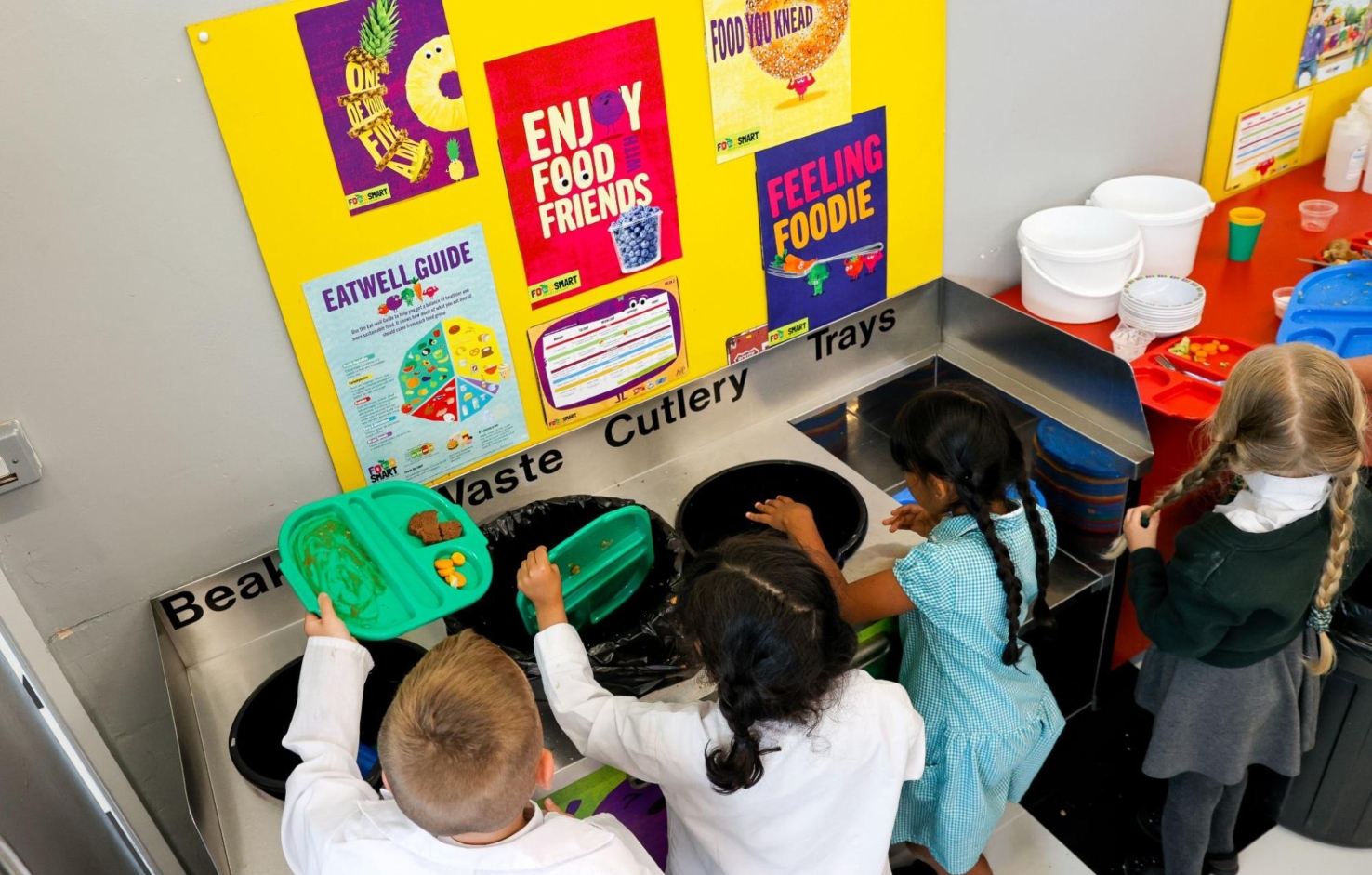At AiP, tackling food waste is central to our mission to make school dining healthier and more sustainable. Our WasteWatch programme, implemented across all AiP schools, helps kitchen teams track, measure, and manage food waste in real time. By understanding exactly what is being wasted, we can make data-driven menu decisions and adjust portion sizes. Insights from this data help us implement practical changes that cut down on avoidable waste, while still ensuring meals are appealing, delicious, balanced and nutritious.
Sustainability at the heart of school dining
We partner with local suppliers, prioritise seasonal produce, and make use of “wonky” vegetables that might otherwise go to waste. By using every ingredient thoughtfully, we reduce environmental impact, support UK farmers, and serve pupils meals they love.
How WasteWatch makes a difference
The WasteWatch programme allows kitchen teams to record and analyse food waste at every stage. From preparation to leftovers on plates. By collecting this data, we can:
- Identify which ingredients or menu items are most often wasted.
- Adjust portion sizes and refine menus based on actual consumption patterns.
- Implement operational changes in kitchens to reduce overproduction and spoilage.
Since the introduction of WasteWatch, AiP has been able to take steps to reduce food waste, including redistributing surplus food to local charities which allows excess meals and ingredients to be sold at a discount rather than going to waste.
|
Why tackling food waste matters
Almost 40% of all food produced is wasted globally, creating major social, economic, and environmental challenges. At AiP, we believe food is fuel for life, and wasting it impacts both communities and the planet. Our WasteWatch programme helps us act responsibly, turning data into tangible changes that reduce our carbon footprint while fostering a culture of sustainability.
Three ways AiP drives change through WasteWatch:
- Tracking and understanding waste – Real-time data gives kitchen teams insights into where waste occurs, allowing targeted actions to prevent it.
- From sourcing local and seasonal produce to rescuing imperfect vegetables and redistributing surplus food, we work with suppliers, charities, and students to make every ingredient count.
- Engaging pupils and communities – Programmes like WasteLESS Week raise awareness among students and staff, encouraging mindful consumption habits that extend beyond the school dining hall.
Through the WasteWatch programme, AiP creates a school dining experience that is healthier, more enjoyable, and environmentally responsible. By turning insights into action, we are reducing waste, conserving resources, and helping pupils understand the value of food.
